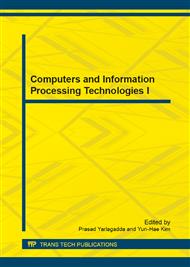p.209
p.213
p.217
p.223
p.232
p.237
p.241
p.245
p.252
Multi-Thread Memory Particle Swarm Optimization for Dynamic Optimization Problems
Abstract:
This paper proposes a multi-thread-memory particle swarm optimization (MTM-PSO) for dynamic optimization problems (DOPs). It introduces multi-thread memory to multi-swarm approaches to deal with DOPs. External memory and multi-swarm approaches are adopted. The best particles near the peaks in each environment are saved in the memory according to storage strategy of update and implement. Multi-thread memory makes full use of local and global optima found in each environment. It makes the good information in the previous evolution transfer to the current population adequately. Using the multi-thread memory and its storage strategy, the particles in the memory are always the best information of local and global optima found until in the current envionment. The information will benefit the future evolution. Experiments on the moving peak benchmark (MPB) for different numbers of peaks testiy MTM-PSO has better performance than dynamic optimization algorithms only with multi-swarm approach.
Info:
Periodical:
Pages:
232-236
Citation:
Online since:
June 2014
Authors:
Price:
Сopyright:
© 2014 Trans Tech Publications Ltd. All Rights Reserved
Share:
Citation:


